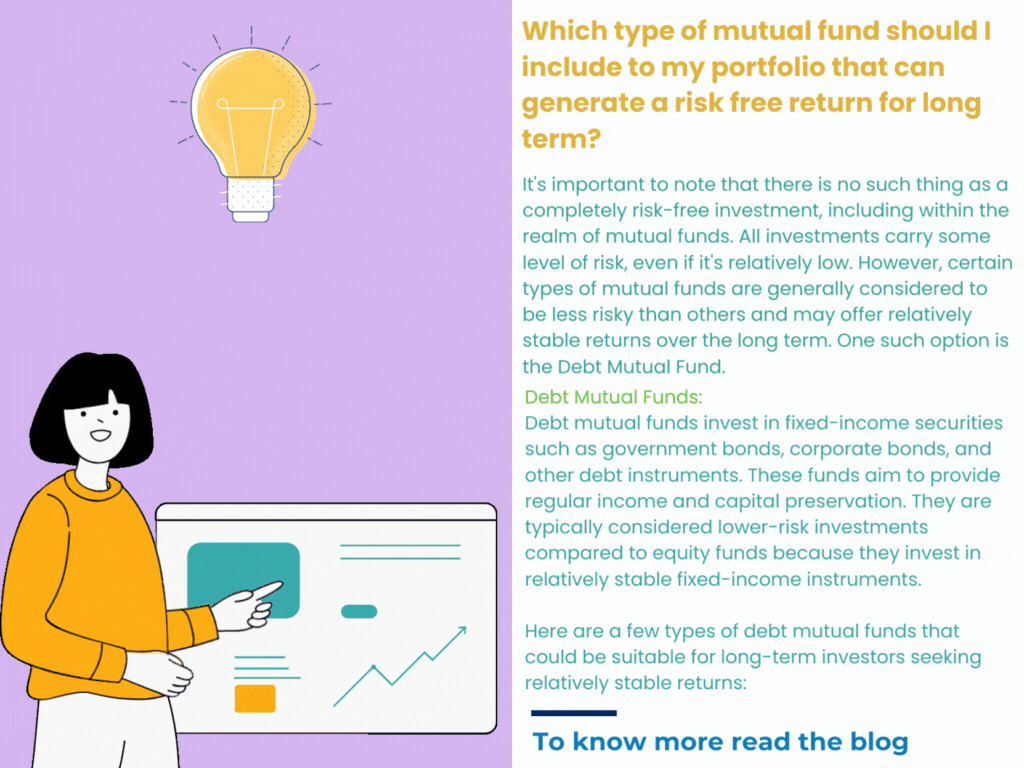Which type of mutual fund should I include to my portfolio that can generate a risk free return for long term?
It's important to note that there is no such thing as a completely risk-free investment, including within the realm of mutual funds. All investments carry some level of risk, even if it's relatively low. However, certain types of mutual funds are generally considered to be less risky than others and may offer relatively stable returns over the long term. One such option is the Debt Mutual Fund.
Debt Mutual Funds:
Debt mutual funds invest in fixed-income securities such as government bonds, corporate bonds, and other debt instruments. These funds aim to provide regular income and capital preservation. They are typically considered lower-risk investments compared to equity funds because they invest in relatively stable fixed-income instruments.
Here are a few types of debt mutual funds that could be suitable for long-term investors seeking relatively stable returns:
Liquid Funds: These funds invest in very short-term debt instruments, and they are known for their high liquidity and relatively low risk. They are suitable for parking your surplus funds temporarily and earning a slightly better return than traditional savings accounts.
Short-Term and Ultra Short-Term Funds: These funds invest in a mix of short- to medium-term debt securities. They provide a balance between safety and potential for higher returns compared to liquid funds.
Income Funds: These funds invest in a mix of longer-term debt securities. They aim to provide regular income through interest payments. While they carry a slightly higher risk than short-term funds, they still tend to be less risky than equity funds.
Dynamic Bond Funds: These funds have the flexibility to adjust their portfolio duration based on interest rate expectations. They aim to benefit from interest rate movements and can potentially generate higher returns, but they also carry a slightly higher risk.
Gilt Funds: These funds invest primarily in government securities, which are considered among the safest investment options. However, they can still be subject to interest rate risk and changes in government policies.
It's important to keep in mind that while debt funds are generally lower risk compared to equity funds, they are not completely risk-free. They can still be affected by interest rate changes, credit risk (default risk of underlying bonds), and market fluctuations.
Before investing in any mutual fund, including debt funds, it's crucial to do thorough research, understand the fund's investment strategy, historical performance, risk factors, and expense ratio. Additionally, consider your own financial goals, risk tolerance, and time horizon. Consulting with a financial advisor can help you make informed decisions tailored to your specific needs and circumstances.


